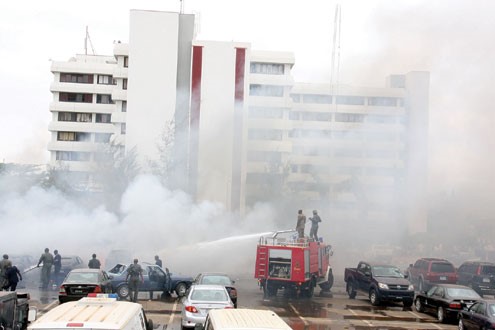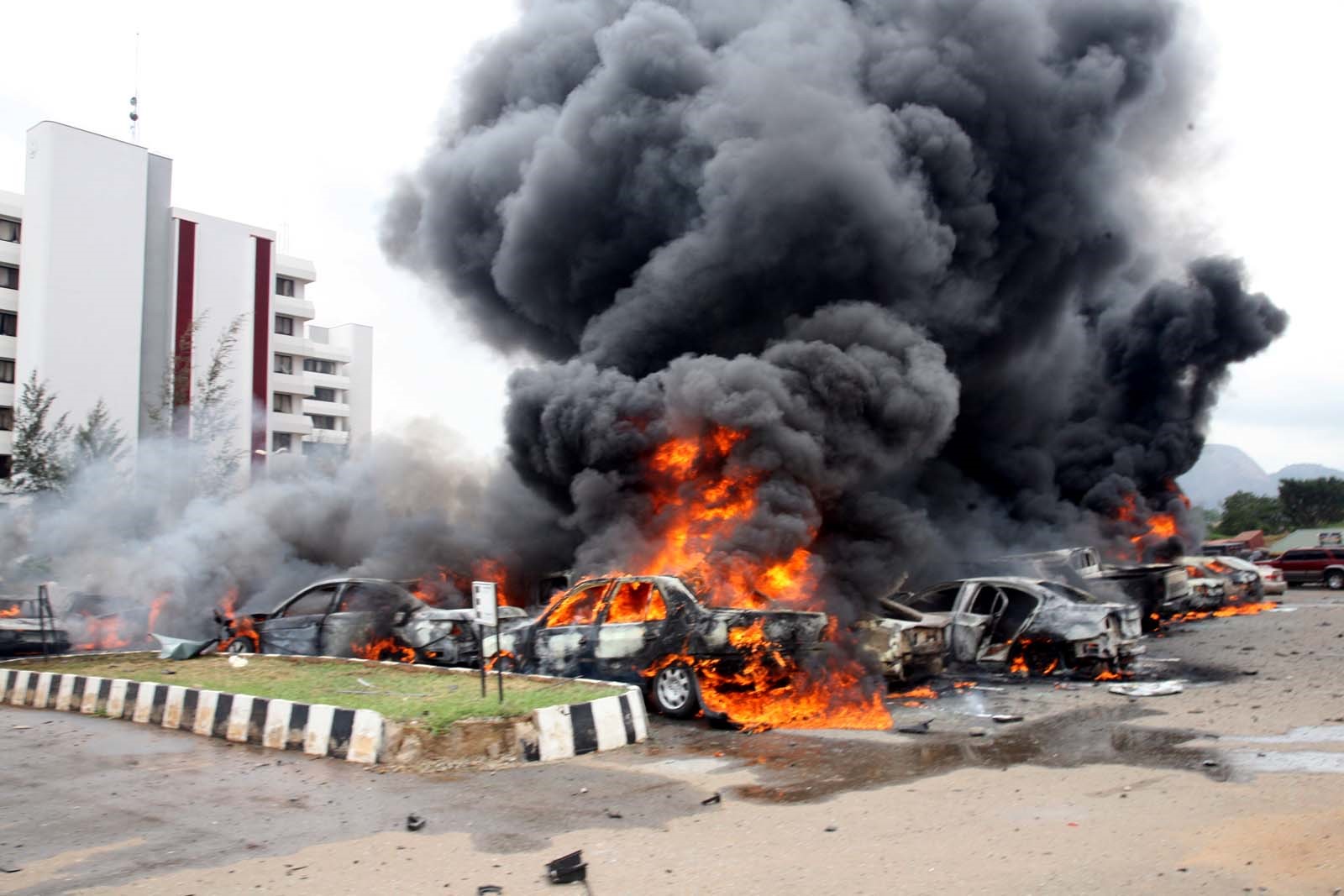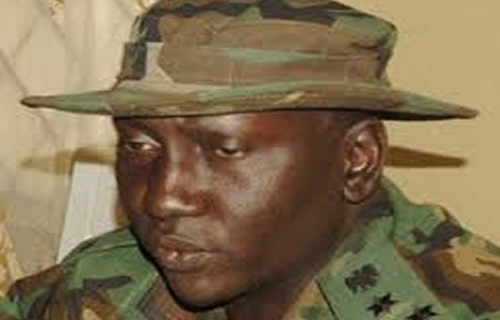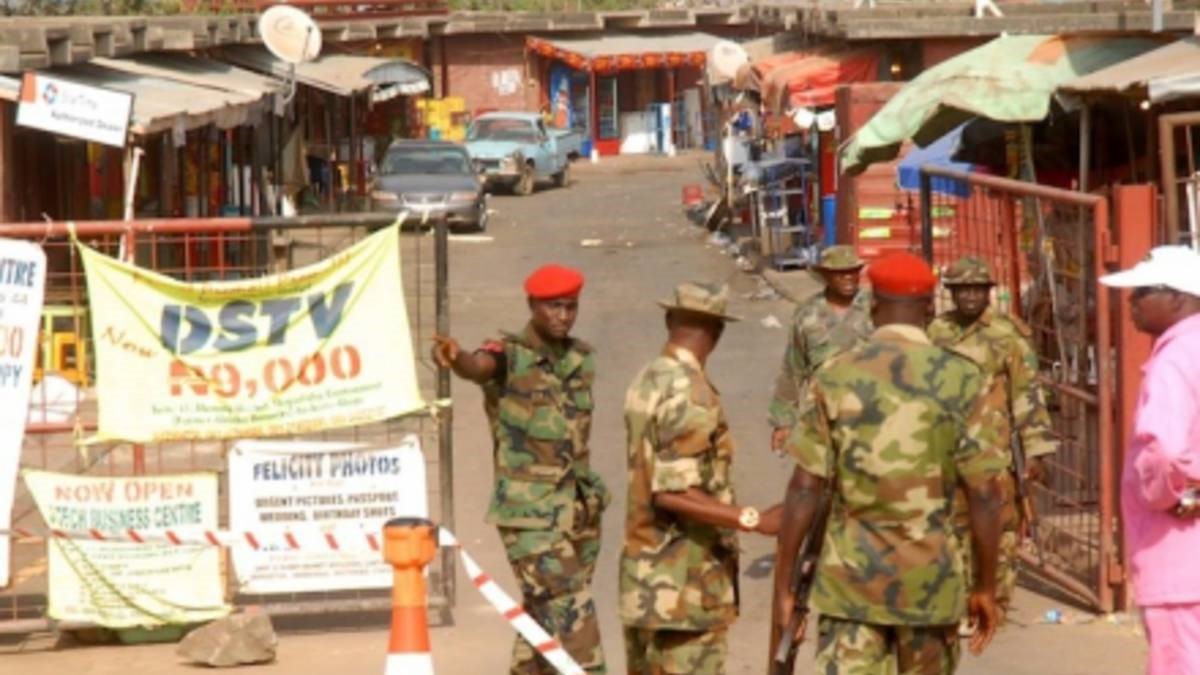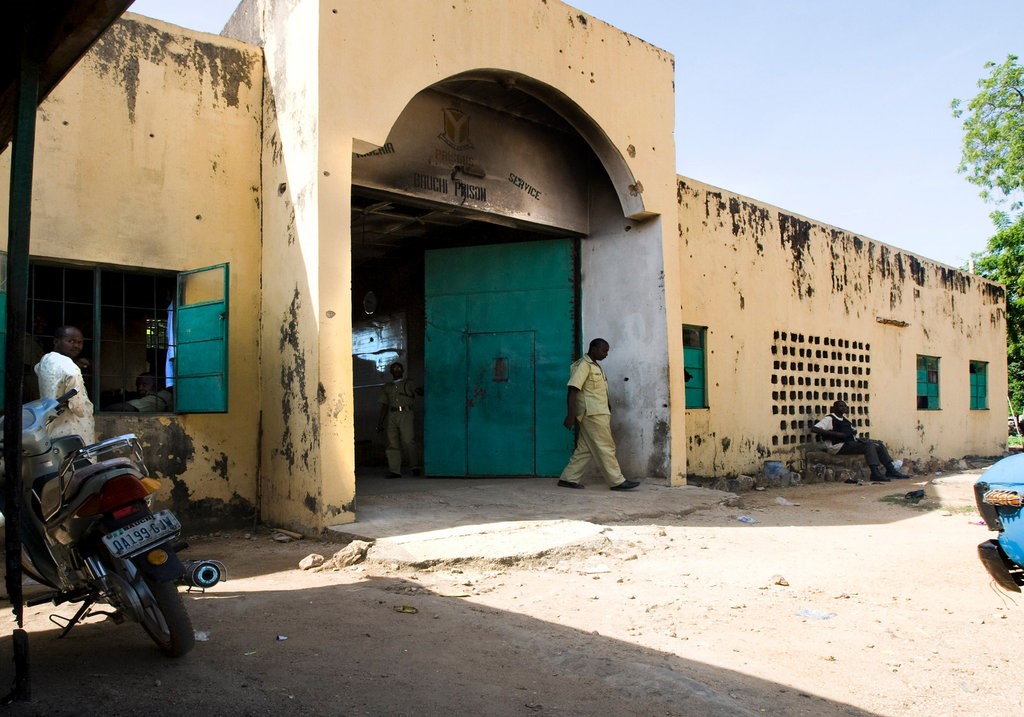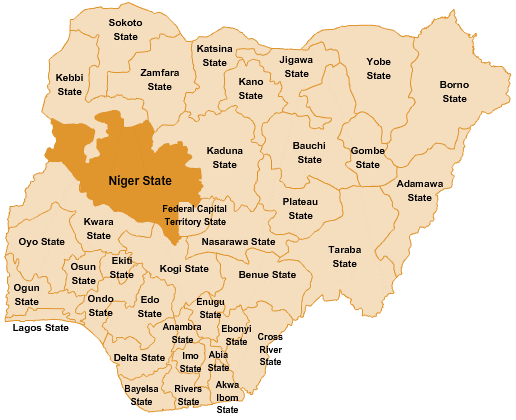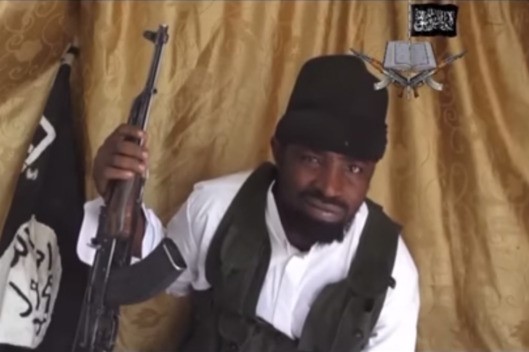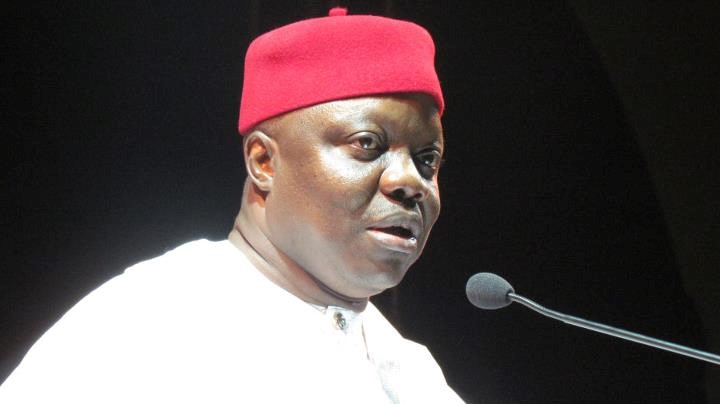Andrew McGregor
November 24, 2010
A hybrid criminal/separatist movement operating in the swampy peninsula of Bakassi is now targeting oil industry infrastructure in the Gulf of Guinea in its effort to shake off Cameroonian control of the region, which was administered by Nigeria until last year. Like neighboring Nigeria, Cameroon has suffered a loss in oil production as a result of the activities of coastal “pirates,” recording a 13% drop in production in 2009. Though much of Cameroon’s oil industry is still in the exploration stage, there are high expectations for further discoveries in the area. The Gulf of Guinea is a resource-rich area, with Angola, Nigeria, Gabon and Equatorial Guinea already major oil producers. Ghana is expected to soon join their ranks as Washington estimates the Gulf of Guinea region will supply a quarter of U.S. oil supplies by 2015 (Reuters, May 19).
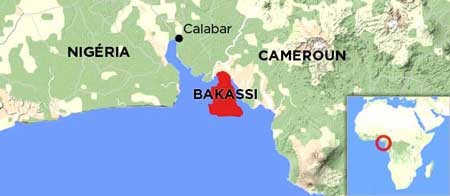 Cameroon is the twelfth-largest oil producer in Africa, with estimated reserves of roughly 200 million barrels in the offshore Rio del Ray Basin, the coastal Douala/Kribi-Camp Basin and the Logone Birni Basin in northern Cameroon. Despite this, Cameroon’s production has dropped from a 2005 high of 94,000 barrels per day to a current 77,000 barrels per day.
Cameroon is the twelfth-largest oil producer in Africa, with estimated reserves of roughly 200 million barrels in the offshore Rio del Ray Basin, the coastal Douala/Kribi-Camp Basin and the Logone Birni Basin in northern Cameroon. Despite this, Cameroon’s production has dropped from a 2005 high of 94,000 barrels per day to a current 77,000 barrels per day.
Covering an area of roughly 257 square miles, Bakassi is composed largely of creeks and mangrove covered islands, making it hard to patrol and a haven for smuggling activities. The abundant fishing grounds off Bakassi provide a livelihood for most of the population, most of whom are “Calabar people” from Nigeria’s Akwa Ibom State and Cross River State.
Violence on the Cameroon Coast
Fears of a Nigerian-style insurgency based on oil production increased with an attack on security forces near the offshore Moudi oil terminal (run by Franco-British Perenco) on the night of November 16. The attack, claimed by the “Africa Marine Commando,” left six dead, including three civilians, two members of Cameroon’s Bataillon d’Intervention Rapide (BIR – Rapid Intervention Battalion) and one of the assailants (Quotidien Mutations [Yaoundé], November 18; La Nouvelle Expression [Douala], November 18; AFP, November 18). Cameroonian security officials later said the attackers had been in contact with Perenco and the French Total oil firm for several days before the assault, demanding payment of a “security tax” to continue operations. Cameroonian officials have criticized the foreign oil companies for paying protection money to insurgents and bandits, just as local fishermen do (AFP, November 18). Boats that have paid the tax are given a small flag to indicate payment has been made.
The same Africa Marine Commando (AMC) also claimed responsibility for the abduction of six sailors from a Belgian ship anchored 40 km off Douala last September. An AMC spokesman said the hostages were moved to a camp on Nigerian territory and demanded the release of ten Ijaw fighters in a Cameroonian prison and the immediate opening of direct talks with Cameroon president Paul Biya (Le Jour [Yaoundé], September 29). The AMC, which appears to be a faction of the larger Bakassi Freedom Fighters (BFF) movement, also kidnapped seven Chinese fishermen in Cameroonian coastal waters who were later freed in exchange for an undisclosed ransom (Radio France Internationale, March 13).
In May, gunmen in light boats attacked two cargo ships in Douala harbor, kidnapping two Russian crewmen from one ship and looting the safe and abducting the captain of the second ship, a Lithuanian refrigerated vessel (Reuters, May 19). The security of Douala’s port is a major regional concern as Douala acts as the commercial lifeline for the land-locked Central African Republic and Chad, another major petroleum producer which runs its oil through the Chad-Cameroon pipeline to the Cameroon port of Kribi.
The gunmen operating off Cameroon’s coast have carried out several daring raids, including a September 2008 operation in the fishing port of Limbe, in which gunmen landed in boats before breaking into the town’s Amity bank, where they stole several million dollars, killed one person and wounded may others (The Post [Yaoundé], September 29, 2008).
A number of other notable incidents of politically-generated violence have occurred in Bakassi in recent years:
• On November 12, 2007, 21 soldiers were killed in the Bakassi Peninsula by gunmen wearing uniforms. The attack was claimed by the previously unknown “Liberators of the Southern Cameroon People” (IRIN, November 13, 2007; November 20, 2007).
• Ten hostages (six French, two Cameroonians, one Senegalese and one Tunisian) were seized by Bakassi Freedom Fighters under Commander Ebi Dari on the night of October 30-31, 2008 (Radio France Internationale, November 2, 2008; Jeune Afrique, December 2).
• Gunmen in a canoe killed a police officer in a motorized canoe off Bakassi in December 2009, with the BFF taking responsibility for the attack (Le Jour [Yaoundé], December 21, 2009).
The Dilemma of the Bakassi Peninsula
The complex issue of what nation Bakassi belongs to began with the decision of the Obong (paramount ruler) of Calabar to sign a treaty of protection with the British in 1884, thus making his territory (including the Bakassi peninsula) a British protectorate. Bakassi fell under the Nigerian colonial administration until 1913, when Britain ceded the territory to the neighboring German colony of Kamerun in return for navigation rights to Calabar, an important commercial center. German control was short-lived, with a combined British-French-Belgian invasion force taking control of the colony in 1916 after a year-and-a-half of stiff resistance from a tiny German garrison reinforced by local troops. After the war, most of the former German colony fell under a French mandate, with a smaller portion becoming “the British Cameroons.” This included Bakassi, as recognized in a 1919 treaty with the French. However, when the rest of the former British Cameroons voted by a 1961 plebiscite to join with the new nation of Cameroon rather than join Nigeria, Bakassi remained under Nigerian administration.
After several border clashes with Nigeria over Bakassi and a northern region near Lake Chad, Cameroon took the issue to the International Court of Justice (ICJ) in 1994. With special reference to the Anglo-German Treaty of 1913 and colonial era diplomatic correspondence between the two imperial powers, the ICJ ruled in favor of Cameroon in 2002, ordering Nigeria to transfer sovereignty over Bakassi to Cameroon, but without requiring any of the Nigerian residents in Bakassi to leave or change their citizenship. The details of the transfer of sovereignty were worked out in the Green Tree Agreement, which was assembled with the additional participation of the United States, Great Britain, France and Equatorial Guinea.
Popular and political opposition to the decision within Nigeria delayed the transfer of sovereignty, though the government neither ratified nor rejected the court’s verdict. In Bakassi itself, there was wide dissatisfaction with the decision in the English-speaking Nigerian majority. As one Bakassi native told a Nigerian daily:
The United Nations should realize that we have the right to decide where we want to be and the right to self-determination. We are Nigerians and here in our ancestral home. You can see some of the graves here dating back to the 19th century. How can you force a strange culture and government on us? We appreciate what the Nigerian government is doing but let it be on record that they have betrayed us and we will fight for our survival and self-determination (The Guardian [Lagos], August 18, 2006).
Left in a political limbo, it was unsurprising that many residents of Bakassi tried to take control of their own political future. In July 2006 the Bakassi Movement for Self-Determination (BMSD) joined with the Southern Cameroons Peoples Organization (SCAPO) and the Movement for the Emancipation of the Niger Delta (MEND) to declare the establishment of the Democratic Republic of Bakassi, an unsuccessful attempt to found a new nation in the small peninsula that brought out few supporters. After the Nigerian Senate ruled the transfer of sovereignty was illegal in 2007, the three groups again declared the independence of Bakassi in July 2008, this time with BMSD declaring it would subsume all its activities under the “joint leadership” of MEND:
With the withdrawal of Nigerian troops from the Bakassi Peninsula, which takes away our last line of defense as Nigerian citizens and exposes our people to perpetual and permanent bondage of exploitation, under-development and death, which characterized life in the larger Niger Delta and the Gulf of Guinea over the last 50 years of multi-national oil companies’ occupation with the connivance of Nigerian leaders, we are left with no other option than to defend our land and people by any means necessary (The Post [Yaoundé], July 31, 2008).
Noting that the Green Tree Agreement violated the Nigerian constitution and had failed to be ratified by the Nigerian Senate, many Nigerian politicians condemned the transfer and challenged its legality (This Day, July 29, 2008). Nigerian residents of Bakassi were given the option of moving to a “New Bakassi” some 30 km inside Nigeria, but the new settlement had no fishing, no roads and few services. Many Nigerians wished to move from Bakassi but remained there after hearing reports of conditions in the new settlement (IRIN, November 13, 2007). The current Obong of Calabar, Edidem Ekpo Okon Abasi Otu V, has led an effort to overturn the ICJ ruling, which he says took no note of the opinions of the residents of Bakassi:
We expected that the government could have come to the people and called for a referendum so that the people would decide what they wanted for themselves. But I don’t really know why it had to be done that way. That decision was taken and part of my territory was ceded. I am not happy and my people are not happy about it. Because it [the decision] is now creating problems for my people. We cannot take care of them. We have been struggling with the relocation issue (Nigerian Compass, July 9, 2009).
The secessionist SCAPO movement had a different plan – including Bakassi with the Southern Cameroons in a secessionist “Republic of Ambazonia.”
Although the Cameroon government refused to acknowledge the political dimension of the violence in Bakassi by declining to identify the insurgents as anything other than “armed bandits,” the decision to hold the August 14, 2009, ceremony marking the transfer of authority in the Nigerian city of Calabar rather than in Bakassi was interpreted as an acknowledgement that Bakassi was far from secure (Reuters, August 13, 2008; Jeune Afrique, December 2, 2008).
Prior to the transfer of power the BFF announced a merger with another militant group battling the military in Bakassi, the Niger Delta Defense and Security Council (NDDSC), with the intention of setting Bakassi “ablaze” and crippling its economy if the handover went through (Africa Press International, July 21, 2009).
Most of the Bakassi militants disarmed on September 25, 2009, but only weeks later ex-rebels claimed Cameroon’s security forces took advantage of this to kill six Nigerians in Bakassi territorial waters as a warning to other Nigerians to stay out of Cameroonian territory. Complaints began to be heard from “Nigerian” residents of Bakassi that the Nigerian navy had abandoned them to “the Cameroonian gendarmes” (Next [Lagos], October 16, 2009). Several months after the transfer of authority, Dan Don Atekpi, the former leader of the disbanded Bakassi Salvation Front (BSF), announced that his movement would renew hostilities against Cameroon government forces in 2010. Claiming 20 Nigerians had been killed by “these heartless Cameroonians” in the first two months after the transfer, Atekpi stated: “We are being provoked to take up arms. We have no intention of doing so except for this unprovoked attack.” Atekpi was also concerned with the failure of the Cameroon government to pay former militants the daily allowance called for in the transfer terms or to provide skills training or other means of rehabilitation (Next [Lagos], January 14).
Secession in the Southern Cameroons
The two mainly English-speaking provinces that joined Cameroon by plebiscite in 1961 (known as the Nord-Ouest and Sud-Ouest provinces of Cameroon, or collectively as the Southern Cameroons) have also become secessionist hotbeds since the 1990s. The secessionist movements active in the South Cameroons usually include Bakassi in their plans for an independent state.
The Southern Cameroon National Council (SCNC) is a secessionist group that has adopted a peaceful approach to freeing Southern Cameroons “from the stranglehold of our oppressor – La République du Cameroun” (The Post [Yaoundé], October 8). The related SCAPO movement complains that the Cameroon government is interested only in the region’s oil and not the Southern Cameroonians or the Bakassians. SCAPO declared the establishment of an independent “Republic of Ambazonia” in August 2006.
Cameroon’s Bataillon d’Intervention Rapide (BIR)
The BIR was formed in 1999 as the Bataillon Léger d’Intervention (BLI), a special intervention force designed to eliminate foreign rebels, bandits and deserters (the “coupeurs de routes”) who were destroying the security of Cameroon’s northern provinces through cattle rustling, abductions, murder and highway robbery. As part of military reforms carried out in Cameroon in 2001, the unit took on its current BIR designation. BIR officers are selected from the graduates of the Ecole Militaire Interarmées in Yaoundé. The BIR commandos were sent to the coast in 2007 to assist the Delta Command in dealing with a rapidly deteriorating security situation (The Sun [Limbe], October 13, 2008).
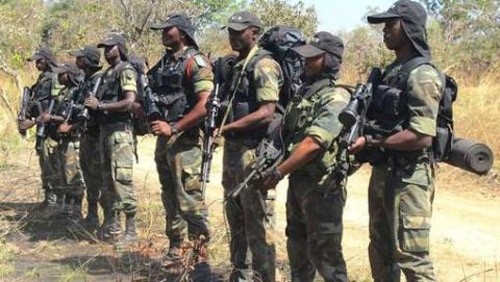 The Bataillon d’Intervention Rapide (BIR)
The Bataillon d’Intervention Rapide (BIR)
The BIR’s mandate has expanded from providing border security since its formation, however, the elite force has mutated into something of a Praetorian Guard for President Paul Biya, an authoritarian who has ruled Cameroon since 1982, sometimes hiring his own international observers to legitimize his victories in largely unopposed elections.
The unit’s reputation in Cameroon took a hit in February 2008, when roughly 100 unarmed civilians were killed when the unit was brought in to Doula and Yaoundé to put down protests against the high cost of living (IRIN, August 29, 2008). Several months later the BIR was again deployed in the cities to prevent protests against the elimination of presidential term limits and the granting of immunity to Biya for all actions taken while in office.
Conclusion
For once, oil is not the main source of the conflict, as Nigeria and Cameroon have agreed to share the revenues from any oil produced off the Bakassi coast. It is, however, an aggravating factor with local militants who complain of the inequitable distribution of oil revenues and the presence of large multinationals with little concern for the well-being of local residents. Bakassi remains largely underdeveloped and mounting insecurity will do little to change this state of affairs. In some cases there is resistance by the Nigerian population to use services such as hospitals provided by Cameroon, as it would be a sign of acceptance of Cameroonian rule (IRIN, August 8, 2009). Most important, however, is the growing perception in Bakassi of the BIR as a colonial-style occupation force with little, if any, local representation. The growing divide between the Anglophone residents of Bakassi and the new Francophone administration invites the spread of a Niger Delta style low-level insurgency that is willing to hobble the development of the oil industry in the Gulf of Guinea through kidnappings and armed attacks to achieve its political aims – independence or a return to Nigerian sovereignty.

